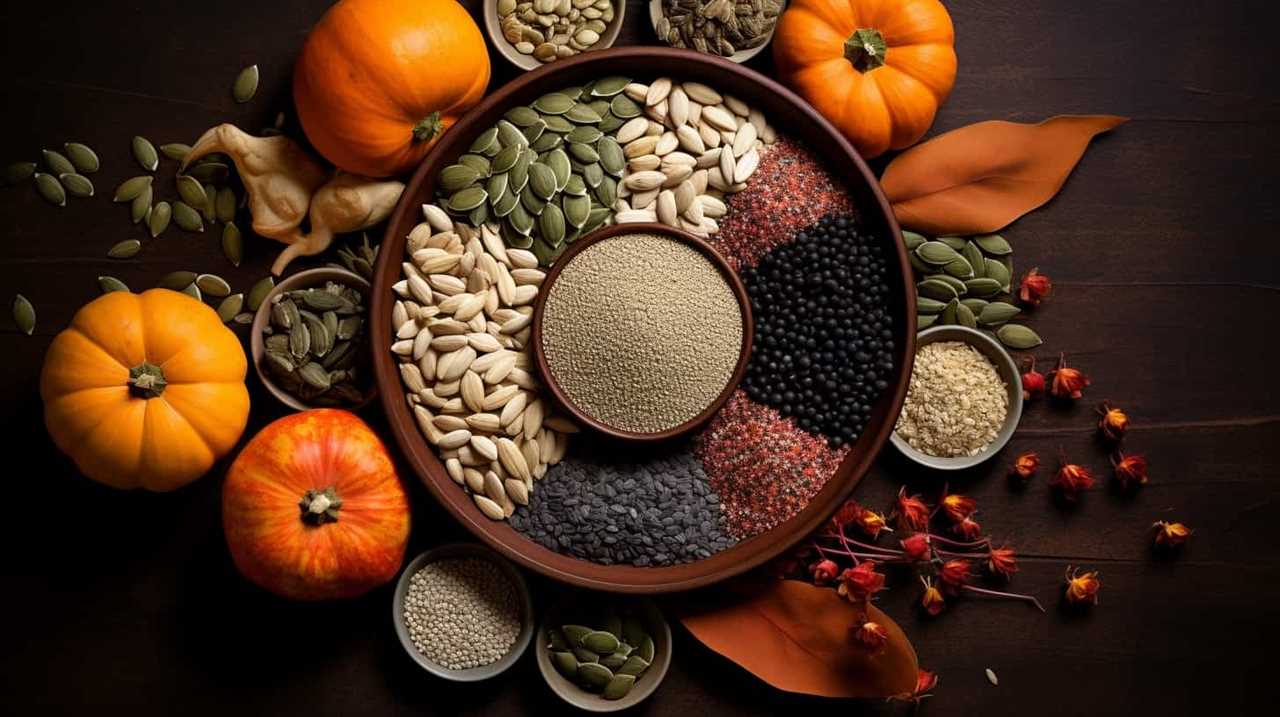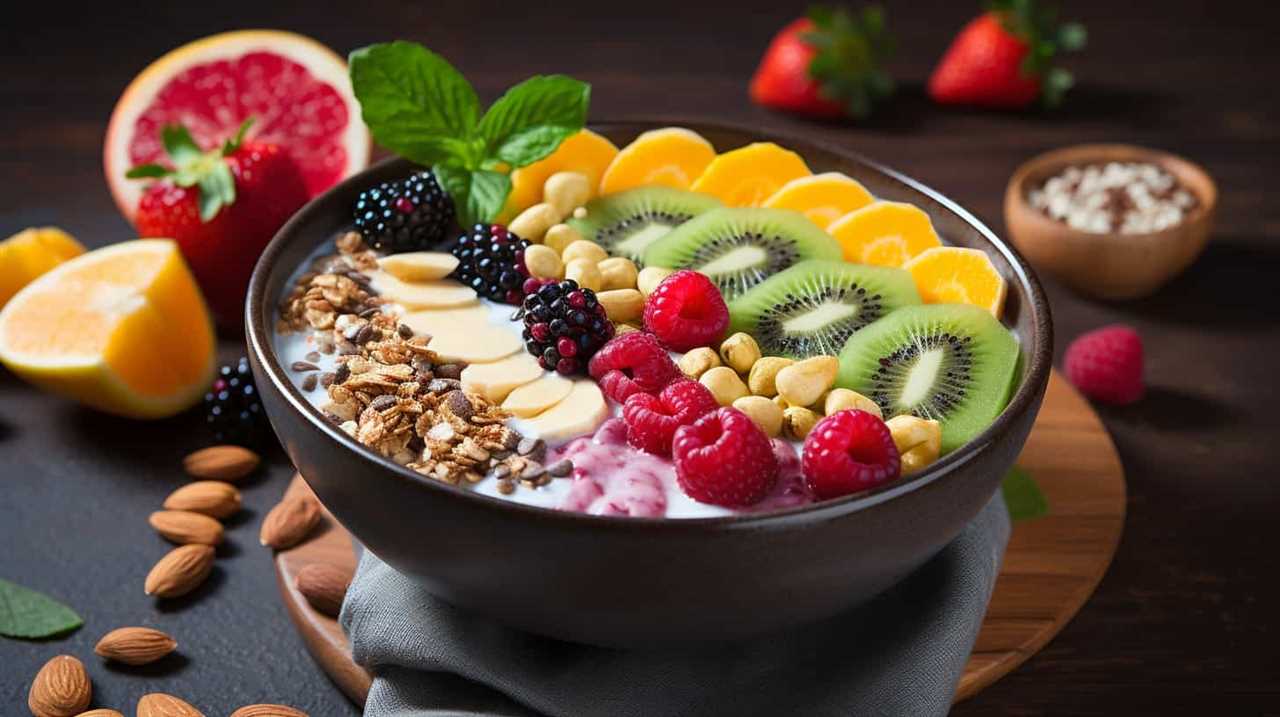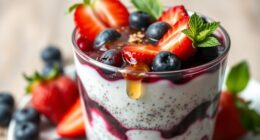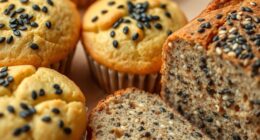We have discovered that incorporating seeds into our gluten-free diet can provide numerous nutritional benefits. Did you know that these tiny but powerful ingredients are packed with Omega-3 fatty acids, antioxidants, and essential nutrients?
Not only do they promote heart health and support our digestive systems, but they also strengthen our immune systems and reduce inflammation. Plus, seeds are a great source of fiber and can even enhance brain function.
Let’s explore the 14 incredible benefits of seeds in our gluten-free diets.
Key Takeaways
- Seeds in gluten-free diets provide essential nutrients like vitamins, minerals, and protein.
- Including seeds in gluten-free diets promotes digestive health by stimulating digestive enzyme production and aiding in food breakdown and nutrient absorption.
- Seeds aid in weight management by increasing satiety and creating a sense of satisfaction with fewer calories.
- Seeds play a significant role in regulating blood sugar levels and can help manage blood sugar levels for diabetes management.
Rich in Omega-3 Fatty Acids
Seeds in gluten-free diets are a valuable source of nutrition, as they’re rich in omega-3 fatty acids. Omega-3 fatty acids are essential fats that play a crucial role in maintaining overall health. These fatty acids are known for their anti-inflammatory properties and have been shown to reduce the risk of chronic diseases such as heart disease, diabetes, and certain types of cancer.

Incorporating seeds into a gluten-free diet can help ensure an adequate intake of omega-3 fatty acids. Additionally, seeds are also high in fiber, which is important for digestive health and can help prevent constipation. By including a variety of seeds in their diet, individuals following a gluten-free lifestyle can reap the benefits of these nutrient-dense foods.
Excellent Source of Fiber
Seeds are an excellent source of fiber, providing numerous benefits for digestive health. High-fiber diets have been shown to promote regular bowel movements, prevent constipation, and maintain a healthy gut microbiota.
Additionally, consuming fiber-rich foods like seeds can aid in weight management by increasing feelings of fullness and reducing overall calorie intake.
Moreover, the soluble fiber found in seeds can help regulate blood sugar levels, potentially reducing the risk of developing type 2 diabetes.
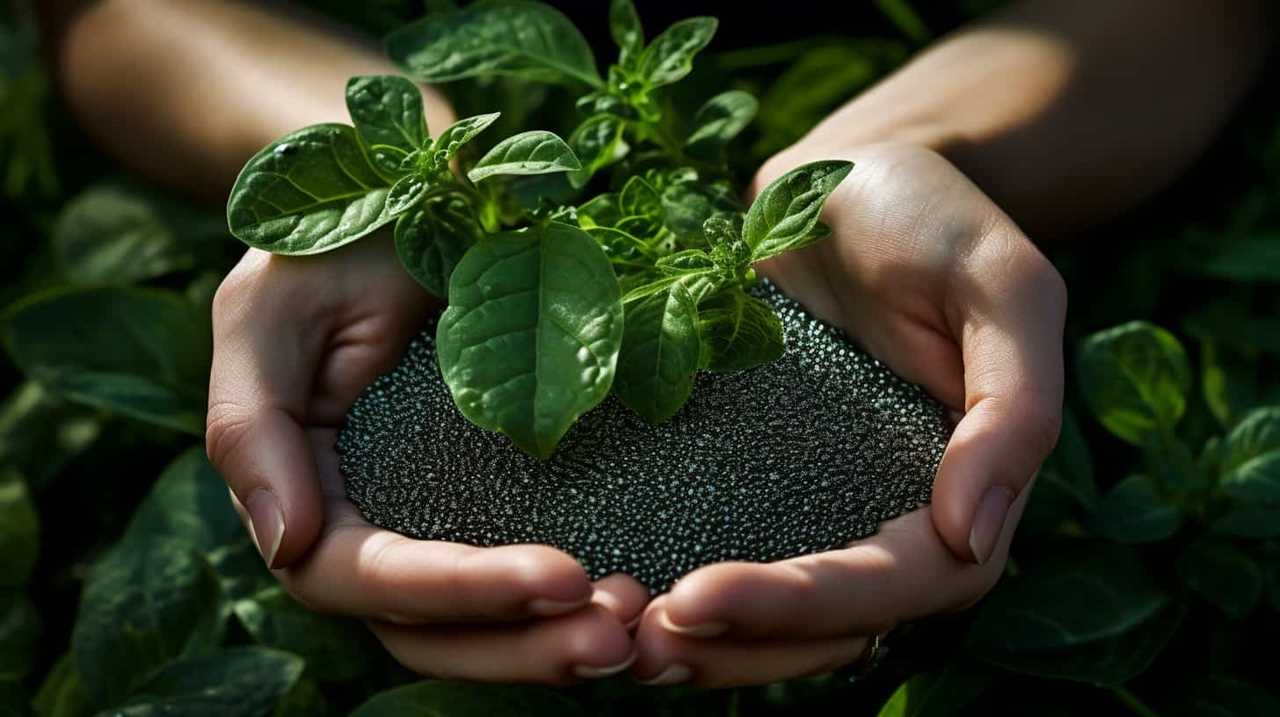
Digestive Health Benefits
Including seeds in our gluten-free diets provides excellent digestive health benefits due to their high fiber content. Fiber is an essential nutrient that plays a crucial role in maintaining a healthy gut microbiome and promoting digestive enzyme production.
The gut microbiome consists of trillions of microorganisms that reside in our digestive tract and play a vital role in digestion and nutrient absorption. Consuming an adequate amount of fiber from seeds helps nourish these beneficial bacteria, promoting a balanced gut microbiome.
Additionally, fiber-rich seeds stimulate digestive enzyme production, which aids in the breakdown of food and facilitates nutrient absorption.
Weight Management Benefits
Incorporating seeds into our gluten-free diets offers excellent weight management benefits as they’re an exceptional source of fiber. Here are four ways in which seeds can aid in weight loss and promote portion control:

- Increased satiety: The high fiber content in seeds helps to keep us feeling full for longer periods, reducing the urge to overeat.
- Improved digestion: The soluble fiber in seeds absorbs water, forming a gel-like substance in the digestive system. This slows down digestion, allowing for better nutrient absorption and preventing spikes in blood sugar levels.
- Reduced calorie intake: By adding seeds to our meals, we can increase the volume without significantly increasing the calorie content. This helps to create a sense of satisfaction while consuming fewer calories.
- Balanced blood sugar levels: The combination of fiber and healthy fats in seeds slows down the absorption of sugar into the bloodstream, promoting stable blood sugar levels and preventing cravings.
Blood Sugar Regulation Benefits
As we continue to explore the benefits of incorporating seeds into our gluten-free diets, it’s important to highlight their significant role in regulating blood sugar levels due to their excellent source of fiber.
Fiber is a type of carbohydrate that can’t be digested by the body, so it doesn’t contribute to blood sugar spikes. Instead, it slows down the digestion and absorption of other carbohydrates, leading to more stable blood sugar levels. This is crucial for blood sugar management and glycemic control, especially for individuals with diabetes or those at risk of developing it.
Research has shown that a high-fiber diet can improve blood sugar control, insulin sensitivity, and reduce the risk of developing type 2 diabetes. By incorporating seeds into our gluten-free diets, we can reap the benefits of their fiber content and support our blood sugar regulation.
Now, let’s transition into the subsequent section about how seeds are high in antioxidants…

High in Antioxidants
Seeds aren’t only a great addition to gluten-free diets, but they also provide a myriad of health benefits.
One of these benefits is their high antioxidant content. Antioxidants play a crucial role in supporting the immune system, protecting against oxidative stress, and reducing the risk of chronic diseases such as heart disease and cancer.
Incorporating seeds into your diet can help provide your body with a powerful dose of antioxidants, promoting overall health and well-being.
Immune System Support
Our research shows that including a variety of seeds in our gluten-free diets can provide us with a significant amount of immune system support, thanks to their high antioxidant content. Antioxidants are compounds that help protect our cells from damage caused by free radicals, unstable molecules that can harm our immune system and lead to chronic diseases. When our immune system is strong, it can better fight off infections and diseases, keeping us healthy and functioning optimally.
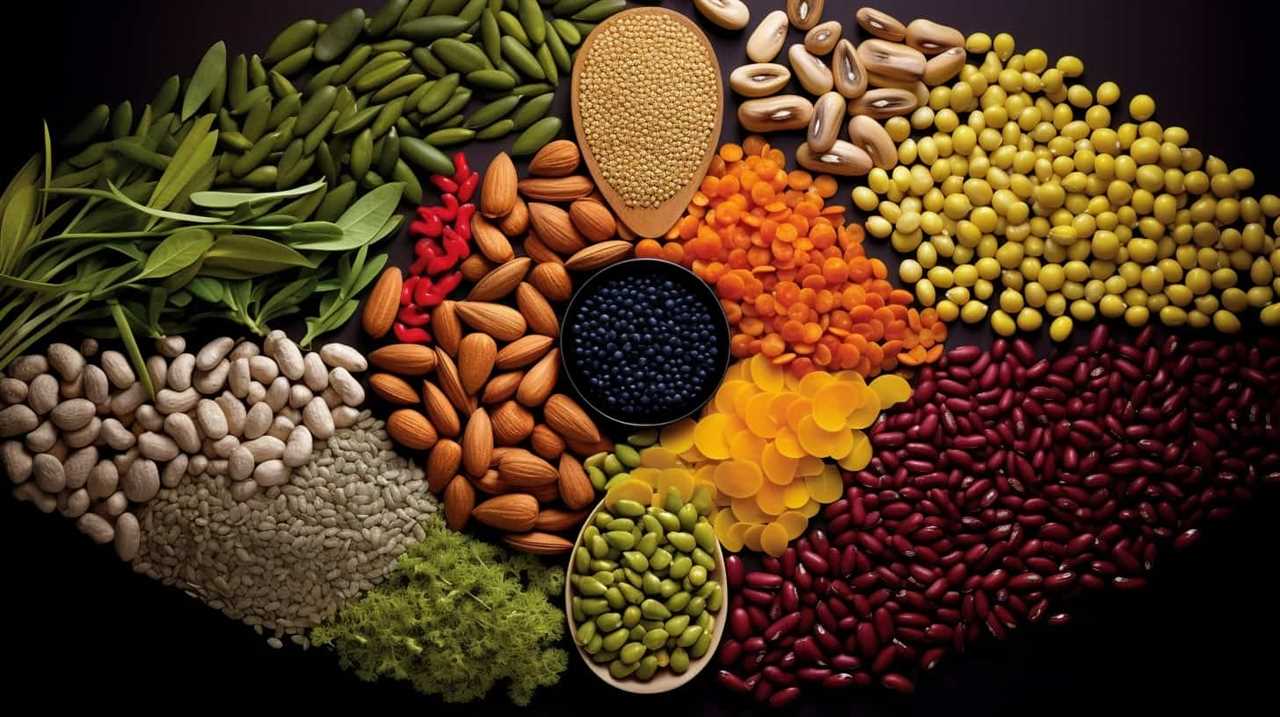
Incorporating seeds into our diets can boost our immune system in several ways:
- Increased Antioxidant Intake: Seeds such as chia, flax, and hemp are rich in antioxidants like vitamin E, selenium, and flavonoids, which help reduce inflammation and support immune function.
- Gut Health Support: Many seeds are gut-friendly, containing fiber and prebiotics that nourish our gut microbiota. A healthy gut is crucial for a strong immune system.
- Omega-3 Fatty Acids: Some seeds, like flax and chia, are excellent sources of omega-3 fatty acids, which have anti-inflammatory properties and support immune function.
- Nutrient Density: Seeds are packed with essential nutrients like vitamins, minerals, and protein, providing our bodies with the fuel they need to support a healthy immune system.
Anti-Aging Properties
Including a variety of seeds in our gluten-free diets can contribute to the anti-aging properties of our immune system, thanks to their high antioxidant content. Antioxidants play a crucial role in neutralizing harmful free radicals in our bodies, which can cause oxidative stress and accelerate the aging process. By incorporating seeds such as chia, flax, and hemp into our diets, we can enhance our skin rejuvenation process and promote a more youthful appearance.
| Seed | Antioxidant Content |
|---|---|
| Chia | High |
| Flax | High |
| Hemp | High |
Chia seeds, for example, are rich in antioxidants like flavonoids and phenolic compounds, which help protect our cells from damage caused by free radicals. Flax seeds are known for their lignan content, which has been shown to have anti-aging effects and promote skin health. Hemp seeds contain high levels of vitamin E, an antioxidant that supports skin health and prevents premature aging.
Disease Prevention Benefits
Incorporating seeds into our gluten-free diets can contribute to preventing diseases by providing us with a high intake of antioxidants. Antioxidants are compounds that help protect our cells from damage caused by harmful molecules called free radicals. Research has shown that a diet rich in antioxidants can have numerous health benefits, including disease prevention and anti-aging properties.
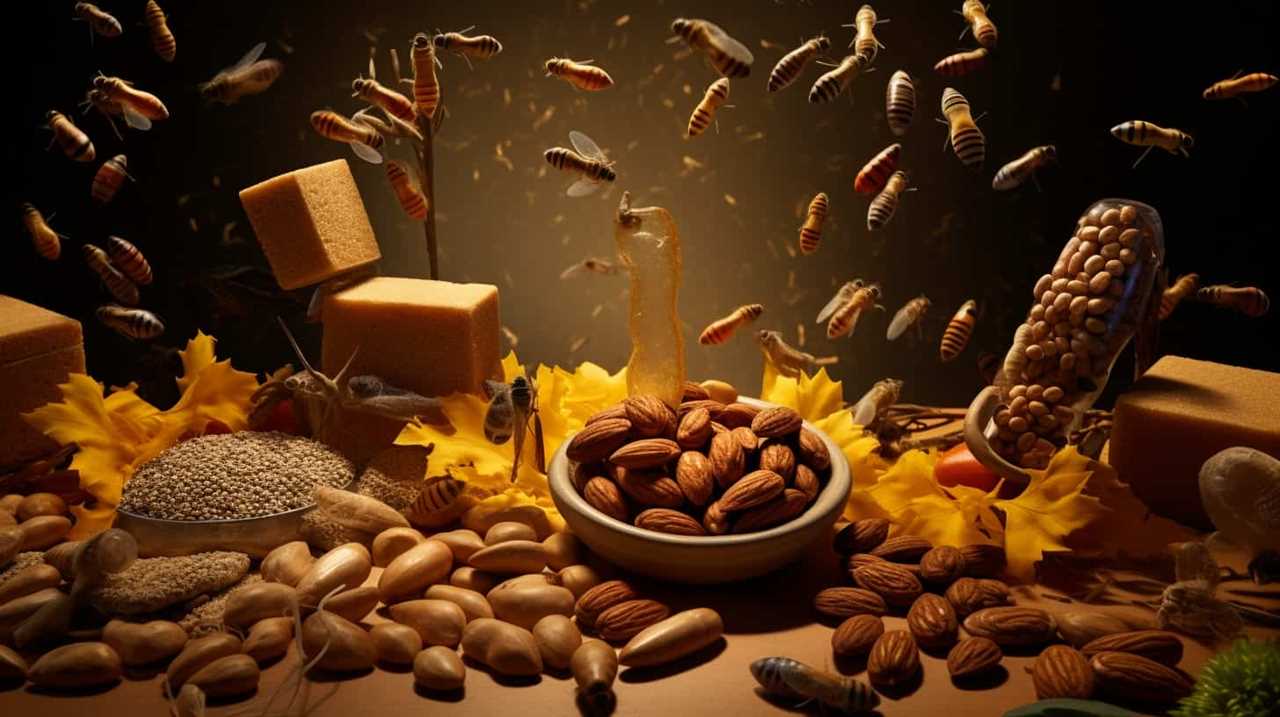
Here are four specific ways in which seeds can help prevent diseases:
- Heart health: Seeds such as flaxseeds and chia seeds are rich in omega-3 fatty acids, which have been linked to a reduced risk of heart disease.
- Diabetes management: Seeds like pumpkin seeds and sunflower seeds are low in carbohydrates and high in fiber, making them beneficial for managing blood sugar levels.
- Cancer prevention: Many seeds, such as sesame seeds and hemp seeds, contain phytochemicals that have been shown to reduce the risk of certain types of cancer.
- Brain health: The antioxidants found in seeds, such as antioxidants vitamin E and selenium, have been associated with improved cognitive function and a reduced risk of neurodegenerative diseases.
Promotes Heart Health
To support heart health, we can include seeds in our gluten-free diets. Seeds have long been recognized for their heart-healthy benefits and their ability to provide cardiovascular support. They are rich in essential nutrients such as omega-3 fatty acids, fiber, antioxidants, and plant sterols, all of which contribute to a healthy heart. Omega-3 fatty acids, in particular, have been linked to a reduced risk of heart disease by lowering blood pressure and cholesterol levels. Additionally, the high fiber content of seeds helps to regulate blood sugar levels and promote healthy digestion, further supporting heart health. To illustrate the heart-healthy benefits of seeds, refer to the table below:
| Seed Type | Omega-3 Fatty Acids (g) | Fiber (g) | Antioxidants | Plant Sterols |
|---|---|---|---|---|
| Chia Seeds | 5.06 | 10.6 | High | High |
| Flaxseeds | 2.43 | 7.6 | High | High |
| Pumpkin Seeds | 0.40 | 5.2 | Moderate | Moderate |
| Sunflower Seeds | 0.31 | 2.6 | Moderate | Low |
| Sesame Seeds | 0.30 | 3.3 | Moderate | Low |
Supports Digestive Health
Seeds play a vital role in supporting digestive health due to their gut-friendly properties. Incorporating seeds into a gluten-free diet can improve digestion and promote a healthy gut.
Certain seeds, such as flaxseeds and chia seeds, are rich in fiber, which aids in regulating bowel movements and maintaining a healthy intestinal environment.
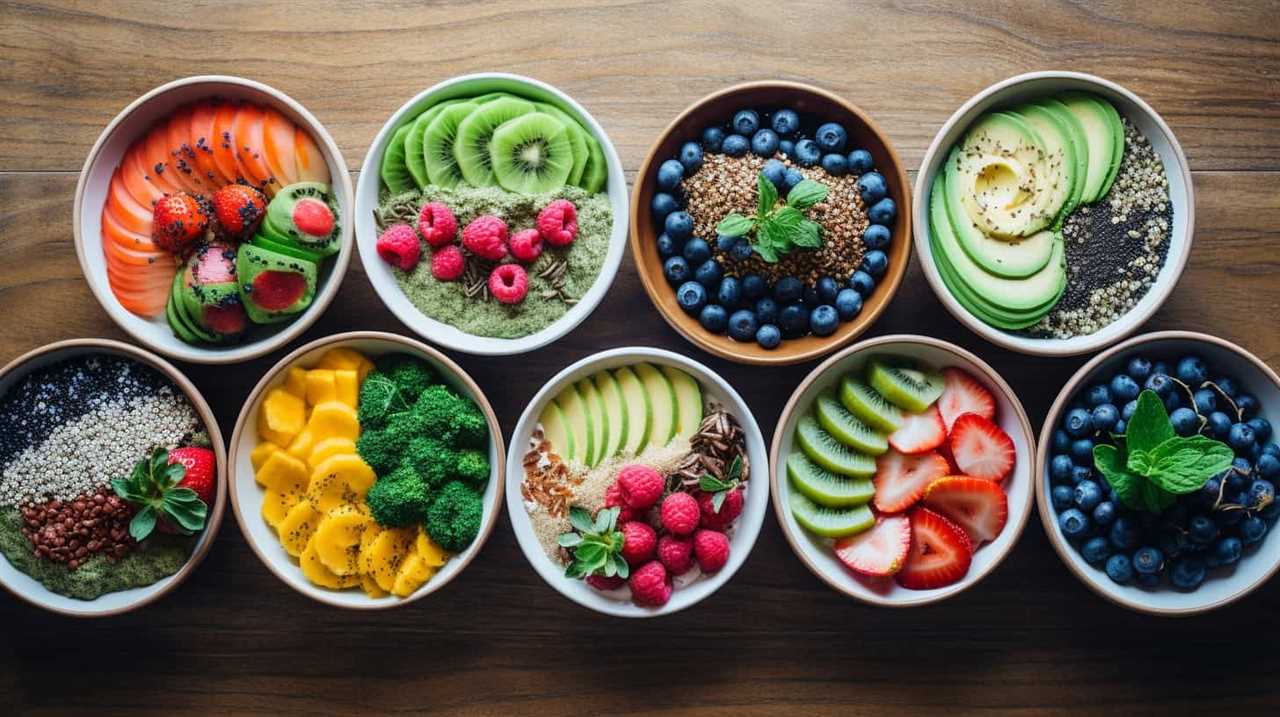
Gut-Friendly Seed Options
Our digestive health can greatly benefit from including gut-friendly seed options in our gluten-free diets. Seeds aren’t only packed with essential nutrients, but they also contain fiber and beneficial compounds that support a healthy gut.
Here are four seed options that can promote digestive health:
- Chia seeds: These tiny seeds are rich in fiber and can help improve digestion by promoting regular bowel movements.
- Flaxseeds: Flaxseeds are an excellent source of omega-3 fatty acids and fiber, which can help reduce inflammation in the gut and promote healthy digestion.
- Pumpkin seeds: These seeds are high in magnesium, which can aid in relaxing the muscles of the digestive tract and promote regular bowel movements.
- Sesame seeds: Sesame seeds are packed with fiber and contain lignans, which have been shown to support gut health by promoting the growth of beneficial bacteria.
Including these gut-friendly seeds in our gluten-free diets can provide us with the necessary nutrients and support a healthy digestive system.
Improving Digestion With Seeds
Including these gut-friendly seed options in our gluten-free diets can contribute to better digestion and support overall digestive health. Seeds are known to be rich in dietary fiber, which plays a crucial role in improving nutrient absorption and promoting gut health. The fiber content in seeds helps regulate bowel movements and prevents constipation, ensuring that food moves smoothly through the digestive system. Additionally, seeds contain enzymes that aid in the breakdown of proteins and carbohydrates, making it easier for the body to digest and absorb nutrients. Furthermore, the natural oils found in seeds help lubricate the intestinal walls, reducing inflammation and promoting healthy digestion. Incorporating a variety of seeds such as chia seeds, flaxseeds, and pumpkin seeds into our gluten-free diet can provide the necessary fiber and enzymes to support optimal digestive function.

| Seed Type | Fiber Content (per 1 oz) | Enzymes Present |
|---|---|---|
| Chia seeds | 10.6 grams | Amylase, Protease |
| Flaxseeds | 7.6 grams | Lipase, Protease |
| Pumpkin seeds | 5 grams | Amylase, Lipase |
| Sesame seeds | 3.3 grams | Amylase, Protease |
Seeds for Healthy Intestines
To maintain healthy intestines and support digestive health, it’s important to incorporate a variety of seeds into our gluten-free diets. Seeds are packed with essential nutrients that promote a healthy gut and contribute to optimal intestinal health. Here are four seeds that can benefit our digestive system:
- Chia Seeds: These tiny powerhouses are rich in fiber, which aids in digestion and helps prevent constipation. They also contain omega-3 fatty acids, which reduce inflammation in the gut.
- Flaxseeds: Flaxseeds are a great source of both soluble and insoluble fiber, promoting regular bowel movements and preventing digestive issues. They also contain lignans, which have been shown to have anti-inflammatory properties.
- Pumpkin Seeds: Pumpkin seeds are rich in magnesium, which helps relax the muscles of the digestive tract, allowing for smooth and efficient digestion. They also contain antioxidants that protect the gut from damage.
- Sunflower Seeds: Sunflower seeds are high in fiber, promoting healthy digestion. They also contain vitamin E, which has been shown to reduce inflammation in the intestines.
Boosts Energy Levels
Eating seeds in gluten-free diets significantly increases our energy levels throughout the day. Incorporating seeds into our meals can provide numerous benefits, including boosting stamina and increasing vitality.
Seeds are rich in essential nutrients such as protein, healthy fats, vitamins, and minerals, all of which contribute to sustained energy levels. For example, chia seeds are packed with omega-3 fatty acids, which have been shown to enhance cognitive function and improve energy metabolism.
Flaxseeds, on the other hand, are an excellent source of fiber, which helps regulate blood sugar levels and prevent energy crashes. Additionally, pumpkin seeds are rich in magnesium, a mineral that plays a crucial role in energy production within our cells.
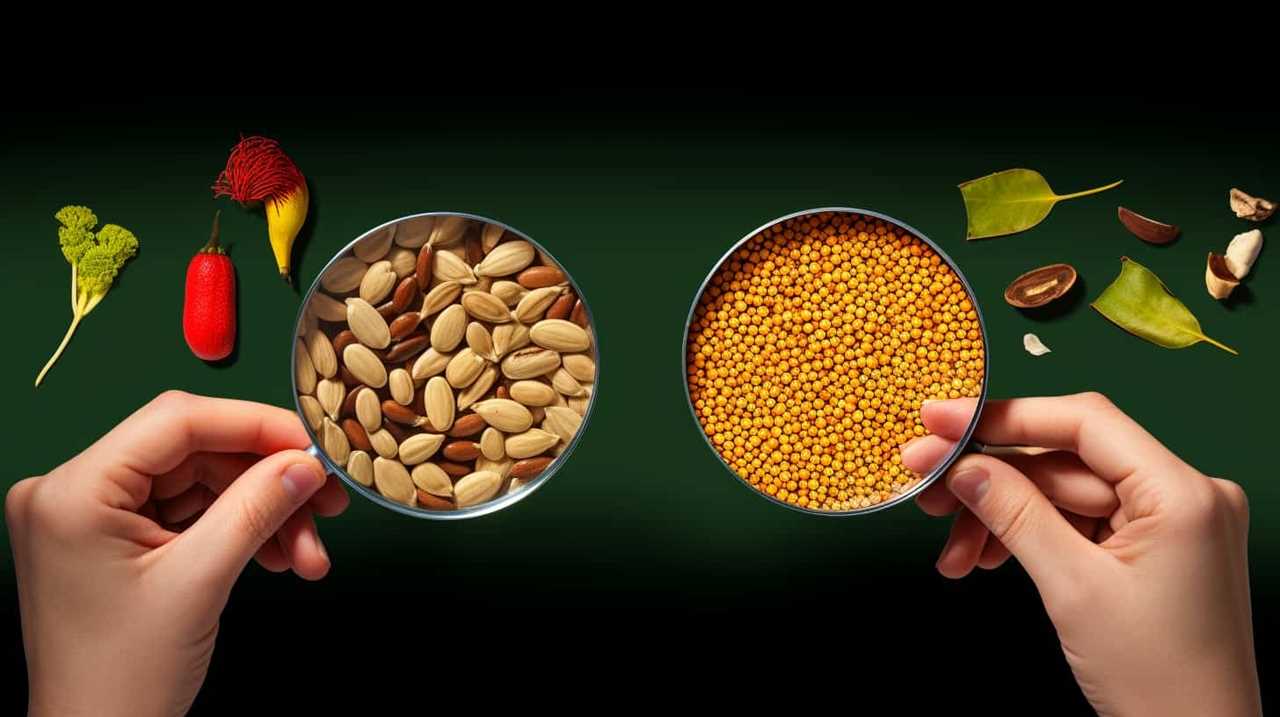
Helps Manage Weight
Furthermore, incorporating seeds into our gluten-free diets can aid in weight management. Here are four ways seeds can help with weight management and blood sugar regulation:
- High fiber content: Seeds like chia and flaxseeds are rich in fiber, which promotes feelings of fullness and reduces overall calorie intake.
- Healthy fats: Seeds like pumpkin and sunflower seeds contain healthy fats, such as omega-3 fatty acids, which can help regulate blood sugar levels and prevent insulin spikes.
- Protein: Seeds like hemp and chia seeds are excellent sources of plant-based protein. Protein is known to increase satiety and help maintain a healthy weight.
- Low glycemic index: Many seeds have a low glycemic index, which means they release sugar into the bloodstream slowly. This helps regulate blood sugar levels and prevents sudden spikes and crashes, promoting weight management.
Incorporating a variety of seeds into a gluten-free diet can provide essential nutrients and contribute to maintaining a healthy weight while regulating blood sugar levels.
Enhances Bone Health
Seeds play a vital role in enhancing bone health due to their natural ability to prevent osteoporosis. They’re rich in calcium content, which is essential for maintaining strong and healthy bones.
Incorporating a variety of seeds into a gluten-free diet can provide the necessary nutrients to support bone health and reduce the risk of bone-related disorders.
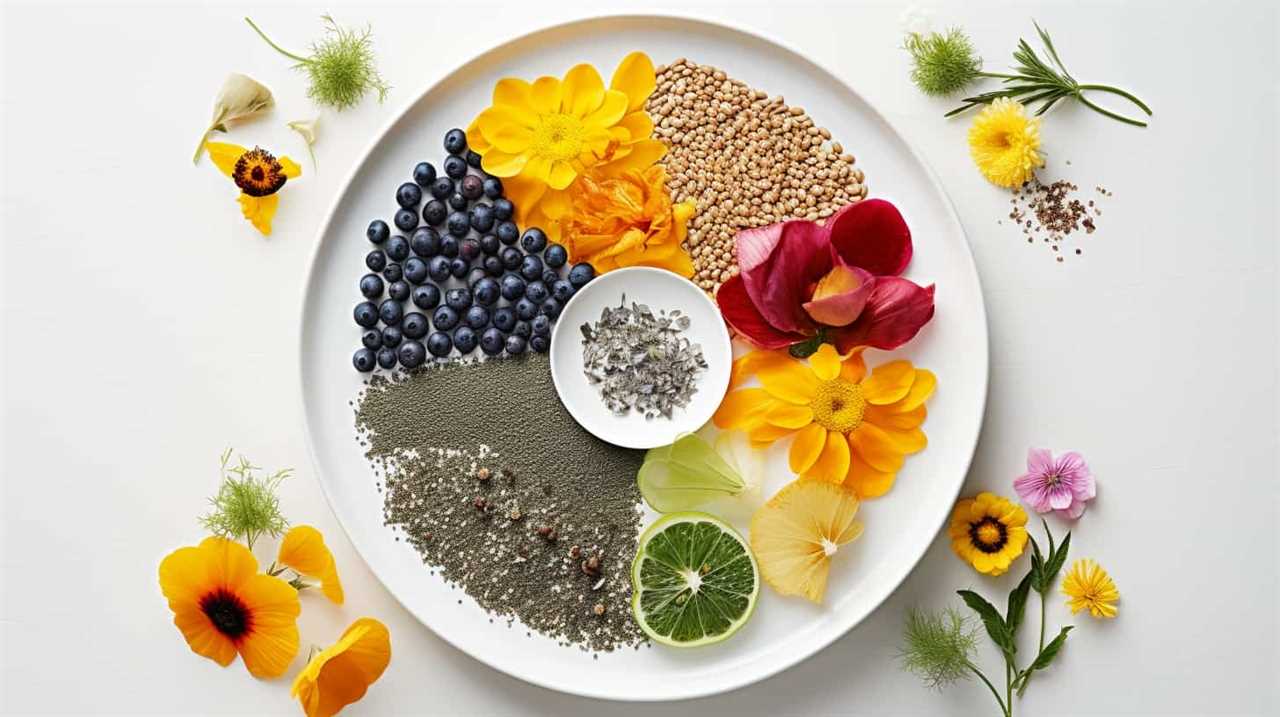
Prevents Osteoporosis Naturally
We can naturally prevent osteoporosis and enhance bone health by incorporating seeds into our gluten-free diets. Seeds are packed with essential nutrients that promote strong and healthy bones. Here are four ways seeds can help prevent osteoporosis and boost energy levels:
- High in calcium: Seeds such as chia seeds and sesame seeds are excellent sources of calcium, a mineral vital for maintaining bone density and strength.
- Rich in magnesium: Pumpkin seeds and flaxseeds are abundant in magnesium, which plays a crucial role in bone formation and metabolism.
- Omega-3 fatty acids: Flaxseeds and hemp seeds are rich in omega-3 fatty acids, which have been shown to reduce the risk of osteoporosis and improve bone health.
- Plant-based protein: Seeds like sunflower seeds and quinoa are high in protein, which is essential for repairing and building bone tissue.
Rich in Calcium Content
Incorporating a variety of seeds into our gluten-free diets can significantly enhance bone health due to their rich calcium content. Calcium is an essential mineral that plays a crucial role in maintaining strong bones and teeth. While dairy products are commonly associated with high calcium content, there are also excellent plant-based sources available. Seeds such as chia, sesame, and poppy seeds are not only gluten-free but also packed with calcium. These seeds provide an easy and convenient way to boost our calcium intake without relying solely on dairy products. Additionally, seeds are rich in other nutrients like magnesium and phosphorus, which are necessary for optimal calcium absorption. By incorporating seeds into our daily diet, we can promote bone health and reduce the risk of osteoporosis.
| Seeds | Calcium Content (per 100g) |
|---|---|
| Chia Seeds | 631 mg |
| Sesame Seeds | 975 mg |
| Poppy Seeds | 1438 mg |
| Flaxseeds | 255 mg |
Transitioning to the next section, seeds not only enhance bone health but also have a positive impact on regulating blood sugar levels.
Regulates Blood Sugar Levels
By including seeds in our gluten-free diets, we can effectively regulate our blood sugar levels through the consumption of nutrient-rich food. Seeds aren’t only packed with essential vitamins and minerals, but they also contain high amounts of fiber and healthy fats that help stabilize blood sugar levels.
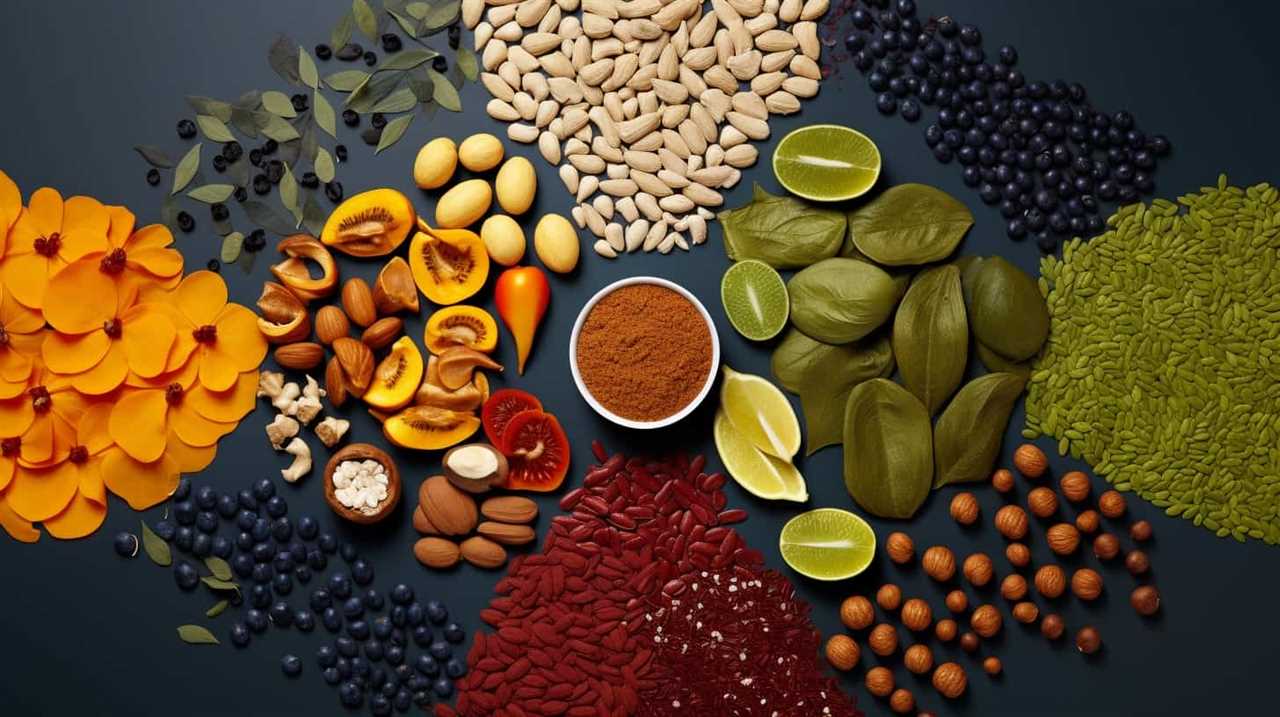
Here are four ways in which seed consumption can aid in blood sugar management:
- Low Glycemic Index: Seeds such as chia, flax, and hemp have a low glycemic index, meaning they cause a slower and more controlled rise in blood sugar levels.
- Fiber Content: Seeds are rich in dietary fiber, which slows down the absorption of glucose and prevents blood sugar spikes.
- Omega-3 Fatty Acids: Some seeds, including flaxseeds and chia seeds, are excellent sources of omega-3 fatty acids. These healthy fats improve insulin sensitivity and reduce the risk of insulin resistance.
- Magnesium: Seeds like pumpkin and sunflower seeds are rich in magnesium, a mineral that plays a crucial role in glucose metabolism and insulin secretion.
Incorporating a variety of seeds into our gluten-free diets is a practical strategy for maintaining stable blood sugar levels and promoting overall health.
Improves Skin Health
Can seeds in gluten-free diets contribute to improved skin health?
Absolutely! Incorporating seeds into a gluten-free diet can have significant benefits for the skin. Seeds are rich in essential fatty acids, antioxidants, and vitamins that promote healthy skin. These nutrients help to improve elasticity and reduce wrinkles, giving the skin a youthful appearance.
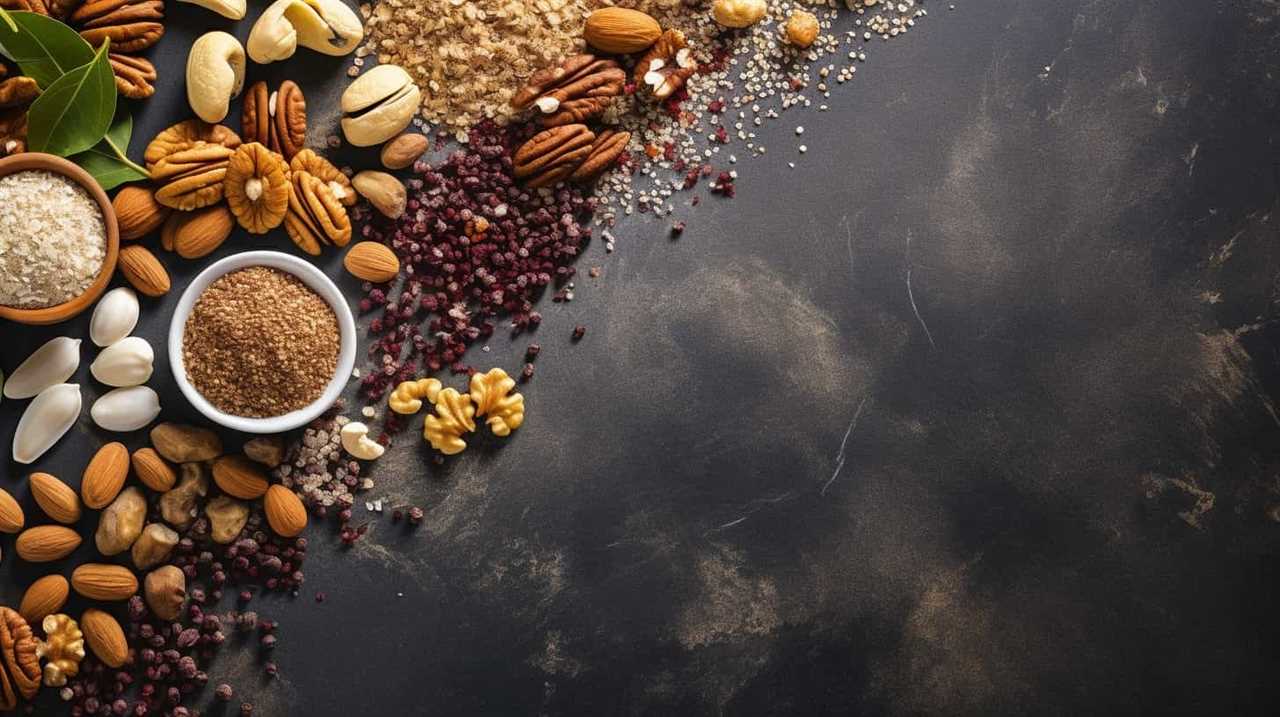
For example, flaxseeds are packed with omega-3 fatty acids, which can help reduce inflammation and improve skin hydration. Chia seeds are high in antioxidants, which protect the skin from free radical damage and promote collagen production. Pumpkin seeds are rich in vitamin E, a powerful antioxidant that helps to maintain skin health.
Strengthens Immune System
Seeds in gluten-free diets play a vital role in strengthening our immune system. Incorporating these nutrient-dense seeds into our daily meals can provide us with immune system support and help us maintain overall health and well-being.
Here are four reasons why seeds are beneficial for our immune system:
- Rich in antioxidants: Seeds like chia, flax, and hemp are packed with antioxidants that help protect our cells from damage caused by free radicals. This, in turn, strengthens our immune system and reduces the risk of chronic diseases.
- High in essential nutrients: Seeds are a great source of essential nutrients, such as vitamins, minerals, and omega-3 fatty acids. These nutrients play a crucial role in supporting our immune system and promoting optimal health.
- Anti-inflammatory properties: Many seeds, including pumpkin and sunflower seeds, have anti-inflammatory properties. Chronic inflammation can weaken our immune system, so consuming seeds with anti-inflammatory properties can help reduce inflammation and support immune function.
- Anti-aging properties: Some seeds, like sesame and flaxseeds, contain compounds that have been found to have anti-aging effects. These compounds help protect our cells from oxidative stress and damage, which can enhance our immune system’s ability to fight off infections and diseases.
Reduces Inflammation
Incorporating seeds into our gluten-free diets can help reduce inflammation and promote overall health and well-being. Seeds such as flaxseeds, chia seeds, and hemp seeds are rich in omega-3 fatty acids, which have been shown to have anti-inflammatory effects in the body. These fatty acids work by reducing the production of inflammatory compounds, thus reducing joint pain and inflammation.
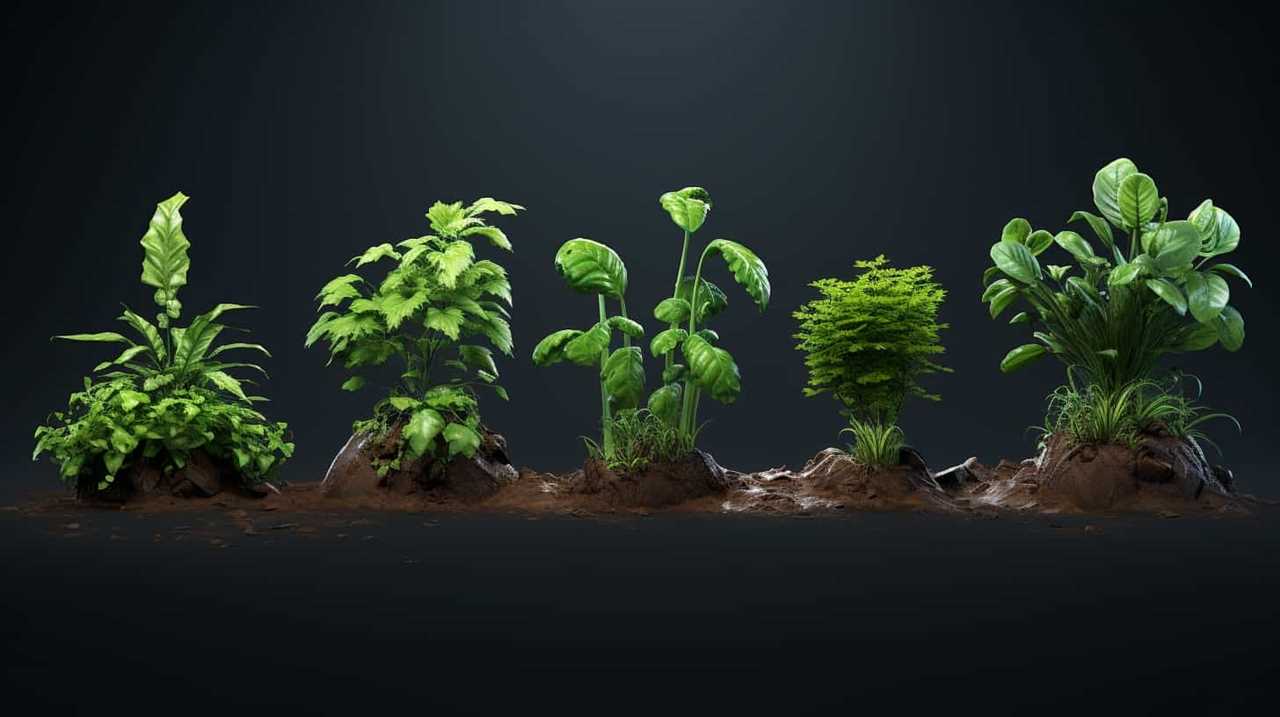
Additionally, seeds are also a good source of fiber, which plays a crucial role in improving gut health. Studies have shown that a diet high in fiber can help reduce inflammation in the gut by promoting the growth of beneficial gut bacteria and improving digestion.
Supports Brain Function
By including seeds in our gluten-free diets, we can continue to support brain function through their rich content of essential nutrients. Seeds have been found to have numerous benefits for brain health and cognitive function. Here are four ways in which seeds support brain function:
- Omega-3 fatty acids: Seeds such as flaxseeds and chia seeds are excellent sources of omega-3 fatty acids, which are crucial for brain health. These fatty acids have been shown to improve cognitive function and protect against age-related cognitive decline.
- Antioxidants: Seeds are packed with antioxidants, such as vitamin E, which help protect brain cells from damage caused by free radicals. This can help maintain optimal brain function and reduce the risk of neurodegenerative diseases.
- B vitamins: Seeds are a good source of B vitamins, including thiamine, riboflavin, and niacin, which are essential for proper brain function. These vitamins play a key role in energy production and neurotransmitter synthesis.
- Minerals: Seeds are rich in minerals like magnesium, iron, and zinc, which are important for brain health. These minerals contribute to neurotransmitter function and support cognitive processes.
Including a variety of seeds in our gluten-free diets can provide essential nutrients that support brain function and overall well-being.
Provides Essential Nutrients
Including a variety of seeds in our gluten-free diets ensures that we obtain essential nutrients for optimal health and well-being. Seeds are a rich source of vitamins, minerals, and antioxidants that are vital for our body’s functioning. They provide a wide range of nutrients, such as omega-3 fatty acids, fiber, protein, and essential minerals like magnesium, zinc, and iron. These nutrients are particularly important for athletes, as they support energy production, muscle recovery, and overall performance. Additionally, seeds play a crucial role in vegan diets, as they provide plant-based sources of protein and other essential nutrients that may be lacking in a plant-based diet. In order to illustrate the nutrient content of various seeds, the following table highlights the key nutrients found in popular seeds:
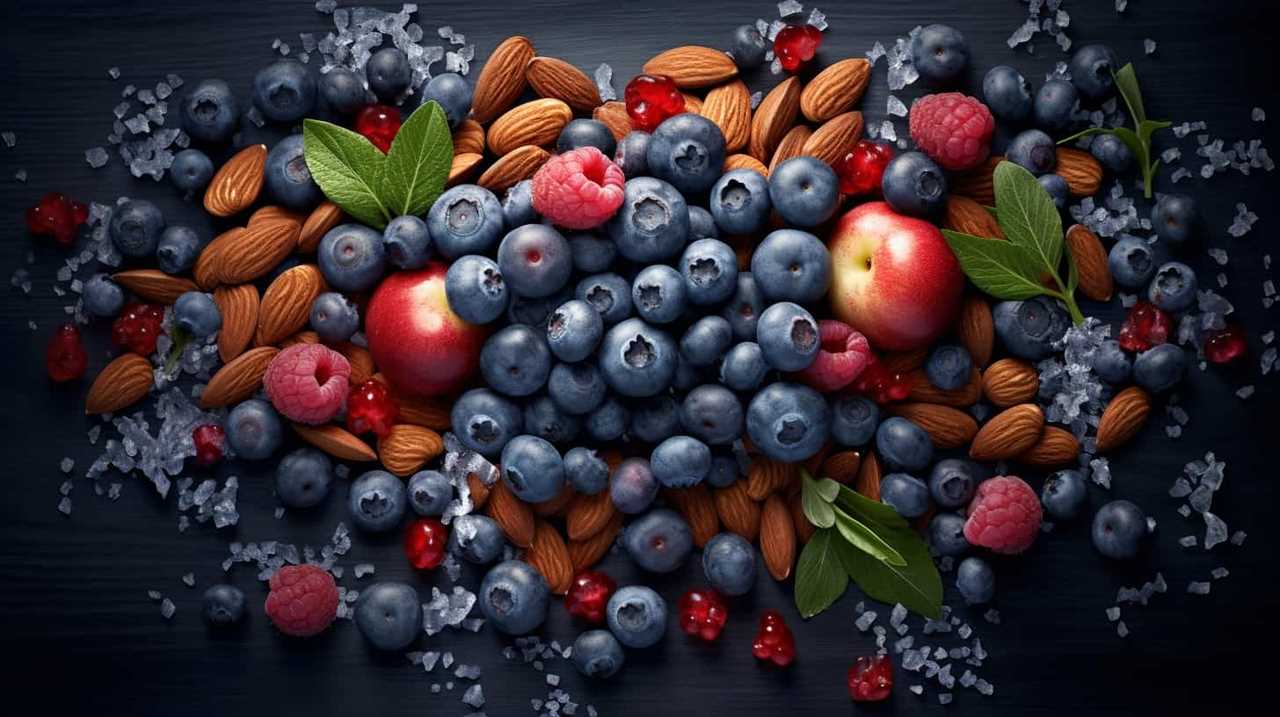
| Seed | Nutrient Content |
|---|---|
| Chia Seeds | Omega-3 fatty acids, fiber, iron |
| Flaxseeds | Omega-3 fatty acids, fiber, lignans |
| Pumpkin Seeds | Protein, magnesium, zinc, iron |
Frequently Asked Questions
Can Seeds Be Included in a Gluten-Free Diet?
Yes, seeds can be included in a gluten-free diet. Incorporating seeds provides numerous benefits for overall health, as they are rich in essential nutrients. Additionally, seed-based snacks are a great option for those following a gluten-free diet.
How Do Seeds Support Digestive Health?
Seeds support digestive health by providing fiber, which aids in regular bowel movements and promotes a healthy gut microbiome. Additionally, the high protein and healthy fat content in seeds can contribute to weight management.
What Are the Different Ways to Incorporate Seeds Into a Gluten-Free Diet?
Incorporating seeds in gluten-free baking and using them creatively in meals are different ways to add nutritious benefits to a gluten-free diet. We can explore various recipes and techniques to maximize their health benefits.
Which Seeds Are the Best Sources of Omega-3 Fatty Acids?
When it comes to omega-3 rich seeds, flaxseeds are the best. They offer numerous health benefits, such as improved heart health and brain function. Incorporating flaxseeds into a gluten-free diet is a smart choice for overall well-being.
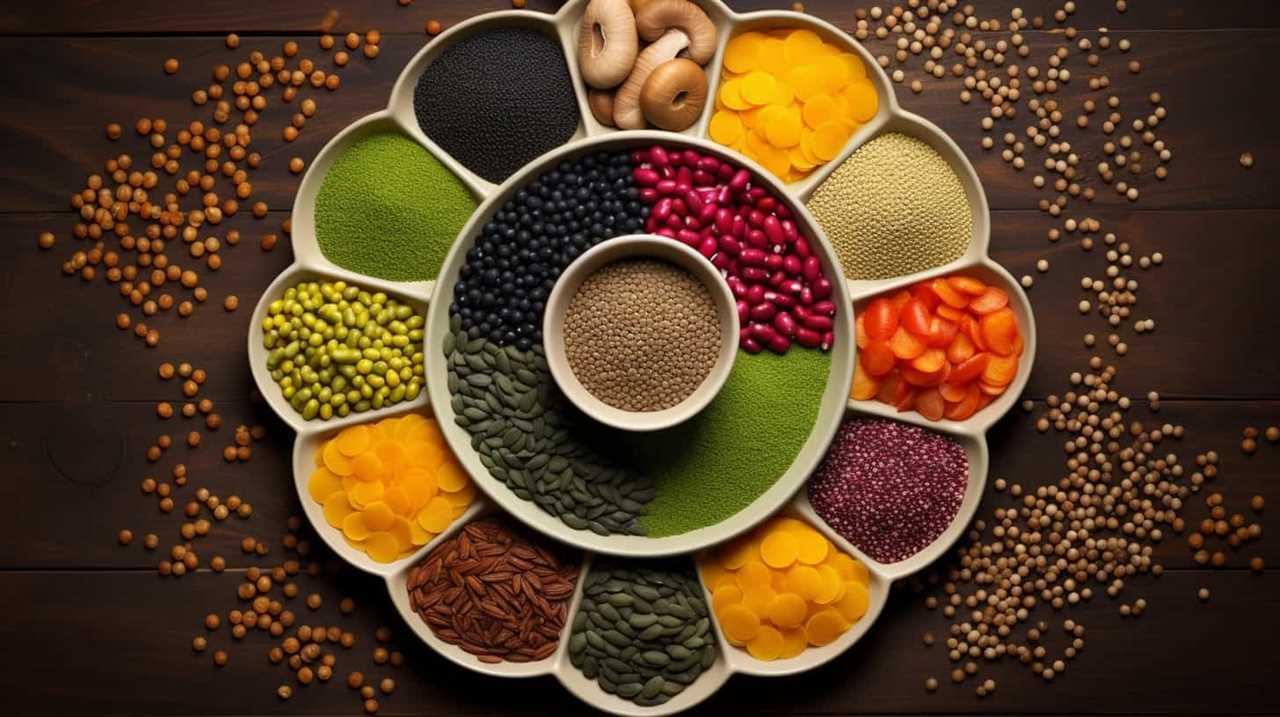
Can Seeds Help With Managing Diabetes and Regulating Blood Sugar Levels?
Managing diabetes with seeds and regulating blood sugar levels can be supported by their nutritional benefits. Incorporating seeds into a gluten-free diet can provide essential nutrients and fiber that aid in blood sugar control and overall health.
Conclusion
In conclusion, seeds are like tiny powerhouses bursting with nutrients that can support our overall health.
From promoting heart health and brain function to reducing inflammation and strengthening the immune system, these little gems have a lot to offer.
So, why not sprinkle some seeds on your gluten-free meals and let them work their magic?
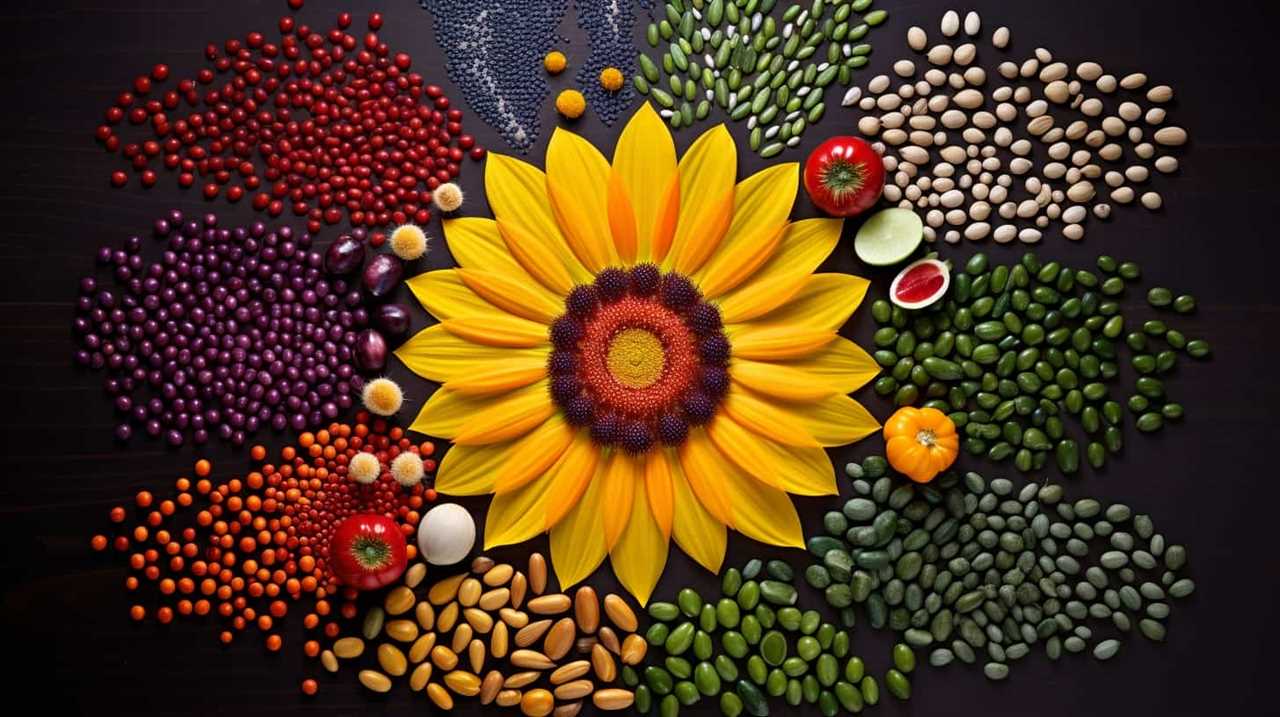
They’re like nature’s secret ingredient for a nourishing and delicious diet.
